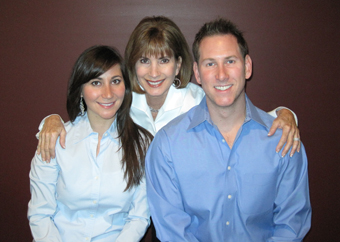Jewish Disability Awareness Month inspires community
Permanent link
.jpg)
In recognition of Jewish Disability Awareness Month, Jewish Child & Family Services (JCFS) invites synagogues across the Chicagoland area to embrace this opportunity to increase awareness of the needs and strengths of people with disabilities in our communities. Held in February, Jewish Disability Awareness Month was created by The Jewish Federations of North America and a consortium of Jewish Special Educators to raise awareness and support meaningful inclusion of people with disabilities and their families in every aspect of Jewish life.
JCFS, a leading provider of programs and services for people with disabilities in the Jewish community and beyond, is pleased to share this list of “10 Ideas to Promote Inclusion” for Synagogues and other Jewish organizations. This list was compiled in consultation with JCFS’ expert clinicians, drawing from guidelines set forth by the Jewish Federations of North America in its Jewish Disability Awareness Month Resource Guide. JCFS is a partner in serving the community with the Jewish Federation/Jewish United Fund.
Speech, Occupational and Developmental Therapies for children, overnight camp for teens with autism or social impairments, Sibshops for brothers and sisters of children with disabilities, and Family Bridges futures planning for aging parents with adult children with disabilities, are among the many services provided by JCFS for people with disabilities and their families.
Jewish Child & Family Services is at the forefront of providing vital, individualized, results-driven services to thousands of children, adults and families of all backgrounds throughout the year. Services include counseling; therapies for children and adults with developmental disabilities; special educational programs; autism assessment, care of abused and neglected youth; respite and more. For information about our services and programs for people with disabilities, call the Disability Helpline at 773-467-3838, or visit us at jcfs.org.
10 Ideas to Promote Inclusion for People with Disabilities
1. Use People First Language in all communications. Calling someone a “disabled person” puts the disability first, as the sole qualifier of that person. A “person with a disability” is a person first and foremost, and that language emphasizes each person’s individuality, dignity, value and capabilities.
2. Make sure that your facilities are physically welcoming to people with disabilities with accessible entry ways, access to the bima, even as simple as making sure shoveled snow doesn’t block access.
3. Use volunteers or teacher’s aids in the classroom to provide extra attention to young students with special needs. Vary activities so that there is plenty of movement between lessons to help keep active children focused.
4. Create a “buddy system” for congregants with special needs, someone who will introduce him or her to others, make sure he or she is included in Kiddush or other synagogue social activities.
5. Send out a regular newsletter or email message focused on your initiatives and upcoming programs. You can also include a relevant quote in your general congregation bulletins about February and Jewish Disability Awareness. Involve the people with disabilities from your congregation in the creative process.
6. Plan an inclusion Shabbat with other congregations for future initiatives. Creating new approaches may mean adding music, crafting a modified religious service, or bringing in a storyteller. Jewish Child & Family Services can offer resources based on its experience serving individuals and their families who address these issues.
7. After assessing your congregation’s needs, consider special funds or volunteer resources for adaptive technology, special equipment, transportation services, sign language interpreter, large print books, or books in Braille for the blind.
8. Launch a Jewish service-learning project involving children with disabilities and their peers. Incorporating Jewish ideals into service projects strengthens communities and provides volunteers with an opportunity to explore and strengthen their Jewish identities. JCFS offers several collaborative possibilities and resources to increase and reinforce inclusion.
9. Encourage people with disabilities to lead a program or participate in a synagogue services. Help them educate your community on the “do’s and don’ts” of working with people with disabilities. For example, greeting people at eye level is a DO, while mentioning a disability when it is not relevant is a DON’T.
10. February as Jewish Disability Awareness month is an opportunity for Jewish congregations and organizations to engage their communities, volunteers and members to look for new, meaningful “inclusions” in the congregation’s activities on every level.




.jpg)



